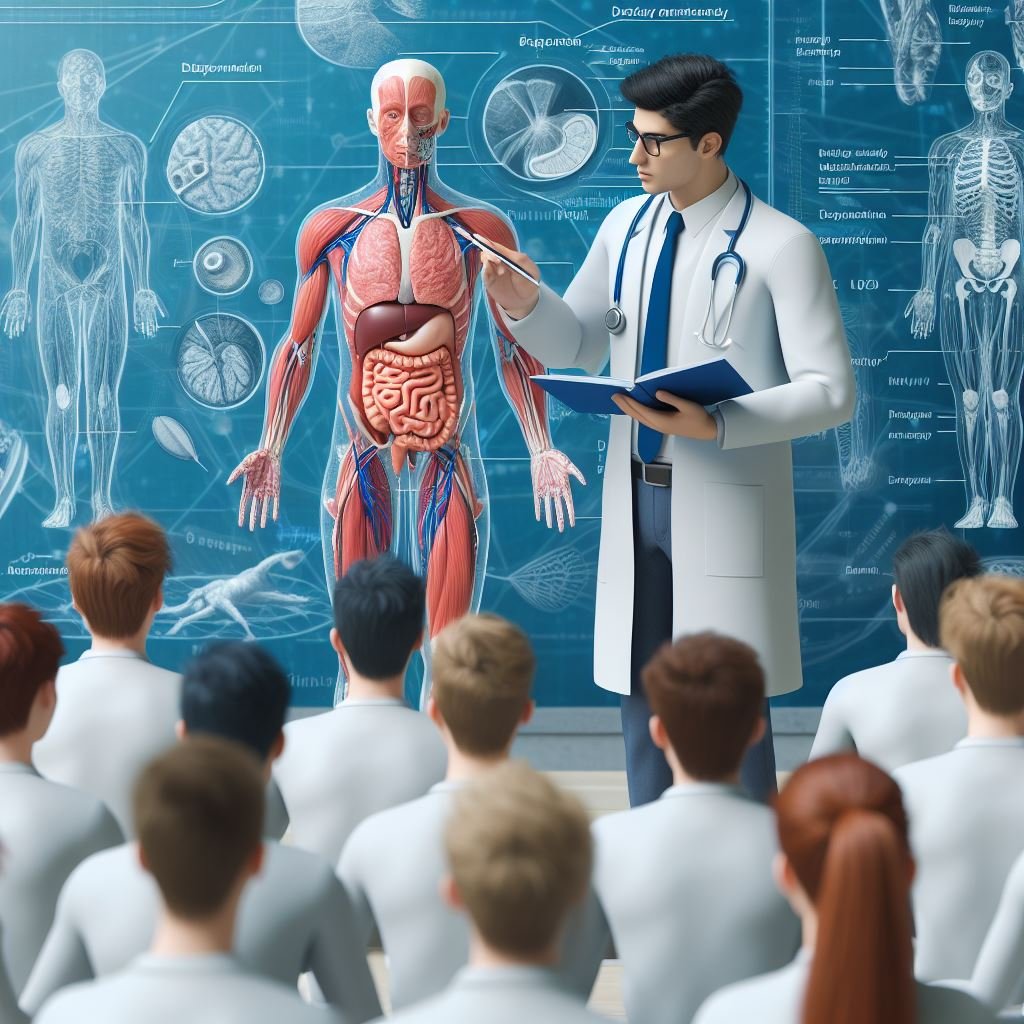
Introduction:
Medical education encompasses a vast spectrum of disciplines, each playing a crucial role in the healthcare ecosystem. From traditional medical degrees like MBBS (Bachelor of Medicine, Bachelor of Surgery) to specialized fields such as Pharmacy (Pharma D), the journey to becoming a healthcare professional offers diverse pathways. In this article, we delve into the nuances of MBBS, BDS (Bachelor of Dental Surgery), Nursing, Pharma D, and medical education as a whole, shedding light on their significance, challenges, and evolving landscape, with a focus on the transformative role of Doctorials Academy’s e-learning solutions.
MBBS:
The MBBS degree remains the cornerstone of medical education across the globe. It equips students with comprehensive knowledge of human anatomy, physiology, pharmacology, pathology, and clinical skills. The rigorous curriculum includes theoretical learning, practical training, and clinical rotations, preparing students to diagnose, treat, and prevent various illnesses. Pursuing an MBBS requires dedication, resilience, and a deep commitment to patient care. Doctorials Academy’s e-learning solutions augment traditional teaching methods, providing students with access to interactive lectures, virtual simulations, and personalized study plans, enhancing their learning experience and enabling them to grasp complex concepts more effectively.
BDS:
Bachelor of Dental Surgery (BDS) focuses on oral health and dental care. Like MBBS, BDS involves a combination of theoretical studies and practical training. Dental students learn about dental anatomy, dental materials, oral pathology, and various dental procedures. Dentistry plays a vital role in promoting overall health, as oral health is closely linked to systemic health. Dentists not only treat dental issues but also contribute to preventive care and oral hygiene education. Doctorials Academy’s e-learning platform offers dental students immersive virtual labs, case studies, and collaborative learning tools, empowering them to develop clinical skills and critical thinking abilities essential for modern dental practice.
Nursing:
Nursing is the backbone of healthcare, providing compassionate care and support to patients across diverse settings. Nursing education encompasses a range of programs, including diploma, bachelor’s, master’s, and doctoral degrees. Nurses learn about patient assessment, medication administration, wound care, patient advocacy, and more. With the growing complexity of healthcare needs, nurses are increasingly taking on advanced roles, such as nurse practitioners and nurse educators. Doctorials Academy’s e-learning modules for nursing education include interactive modules, clinical simulations, and peer-to-peer discussion forums, fostering a collaborative learning environment and preparing nurses to deliver high-quality, patient-centered care.
Pharma D:
Pharma D, or Doctor of Pharmacy, is a professional doctoral degree program that prepares pharmacists for advanced clinical practice. PharmD students study pharmacology, pharmaceutics, pharmacotherapy, pharmacokinetics, and pharmacodynamics. They also gain hands-on experience through internships and clinical rotations. Pharmacists play a crucial role in medication management, ensuring safe and effective use of medications. With the rise of personalized medicine and advances in pharmacotherapy, the role of pharmacists continues to evolve, encompassing medication therapy management, medication reconciliation, and patient counseling. Doctorials Academy’s e-learning platform offers PharmD students access to comprehensive drug databases, clinical decision support tools, and virtual patient case studies, enhancing their pharmacotherapy knowledge and clinical reasoning skills.
Evolving Landscape of Medical Education:
The landscape of medical education is constantly evolving in response to technological advancements, demographic changes, and healthcare trends. Interdisciplinary collaboration, evidence-based practice, and patient-centered care are becoming increasingly emphasized across all healthcare disciplines. Moreover, there is a growing recognition of the importance of cultural competence, empathy, and communication skills in healthcare delivery. Doctorials Academy’s e-learning solutions are designed to foster these essential competencies, equipping healthcare professionals with the skills and knowledge needed to thrive in today’s dynamic healthcare environment.
Challenges and Opportunities:
Despite the noble aspirations associated with medical education, it is not without challenges. Limited resources, faculty shortages, and infrastructure constraints pose significant obstacles, especially in developing countries. Moreover, the rapid pace of medical advancements necessitates continuous learning and professional development for healthcare professionals. However, these challenges also present opportunities for innovation, collaboration, and transformative change in medical education. Doctorials Academy’s e-learning solutions address these challenges by providing scalable, cost-effective, and accessible educational resources that enable healthcare institutions to deliver high-quality education to students, regardless of geographical location or resource constraints.
Conclusion:
Medical education encompasses a diverse array of disciplines, each contributing to the delivery of high-quality healthcare. Whether pursuing MBBS, BDS, Nursing, Pharma D, or other healthcare professions, students embark on a journey filled with challenges, opportunities, and the profound satisfaction of making a difference in people’s lives. As the landscape of healthcare continues to evolve, medical education must adapt to ensure that future healthcare professionals are equipped with the knowledge, skills, and values necessary to meet the needs of patients and communities around the world. With Doctorials Academy’s innovative e-learning solutions, the journey to becoming a competent and compassionate healthcare professional becomes more accessible, engaging, and impactful than ever before.


